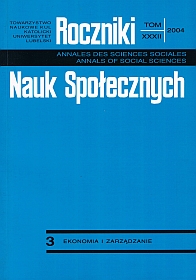System pomocy publicznej dla przedsiębiorcy – rozwiązania w Polsce i w Unii Europejskiej
Abstrakt
The EC Treaty does not give a definition of the term `State aid', it only lists in Article 87 (1) EC the conditions under which State aid is incompatible with the common market. Neither has the ECJ ruled on what exactly constitutes State aid, it has merely stated: `the concept of State aid must be understood wider than the one of a subsidy as it embraces not only positive benefits such as subsidies themselves, but also interventions which, in various forms, mitigate the charges normally included in the budget of an undertaking and which, without therefore being subsidies in the strict sense of the word, are similar in character and have the same effect'. According to Article 87 (1) EC, a measure must fulfil the following conditions to constitute State aid:
–it must favour certain undertakings or the production of certain goods;
–it must be granted by a Member State or through State resources;
–it must distort or threaten to distort competition, and
–it must affect trade between Member States.
Polish State Aid Law imposes a general prohibition of State aid in order to prevent competition distortion. Simultaneously the Law specifies the conditions for admissibility of aid principles of monitoring the aid granted by State agencies, local authorities and other bodies administering public resources, including the aid granted by public enterprises. The Law is on one hand aimed at disciplining public spendings and losses in public revenues which are used to support entrepreneurs and on the other hand at the approximation of the Polish State aid law to the standards of the European Union.
Copyright (c) 2004 Roczniki Nauk Społecznych

Utwór dostępny jest na licencji Creative Commons Uznanie autorstwa – Użycie niekomercyjne – Bez utworów zależnych 4.0 Międzynarodowe.


